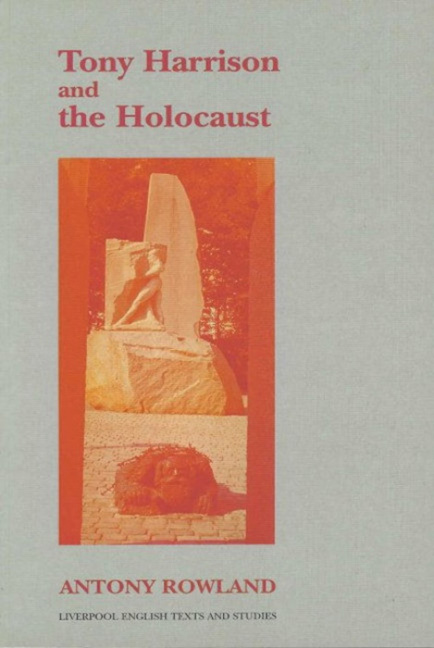Book contents
- Frontmatter
- Dedication
- Contents
- Acknowledgements
- Introduction
- 1 Cinema, Masturbation and Peter Pan: A Non-Victim Approach to the Holocaust
- 2 Amorous Discourse and ‘Bolts of Annihilation’ in the American Poems
- 3 Mourning and Annihilation in the Family Sonnets
- 4 The Fragility of Memory
- 5 Culture/Barbarism Dialectics in Harrison's Poetry
- Bibliography
- Index
5 - Culture/Barbarism Dialectics in Harrison's Poetry
- Frontmatter
- Dedication
- Contents
- Acknowledgements
- Introduction
- 1 Cinema, Masturbation and Peter Pan: A Non-Victim Approach to the Holocaust
- 2 Amorous Discourse and ‘Bolts of Annihilation’ in the American Poems
- 3 Mourning and Annihilation in the Family Sonnets
- 4 The Fragility of Memory
- 5 Culture/Barbarism Dialectics in Harrison's Poetry
- Bibliography
- Index
Summary
Culture and the Holocaust
‘Holocaust’ and ‘class’ approaches to Harrison's work can be linked through dialectics of articulacy. Barbaric poetry's struggle with the apparently unrepresentable nature of atrocity might find its counterpart in the battle against inarticulacy in working-class poetry; it would be disingenuous to assert that awkward aesthetics are the sole preserve of Holocaust and post-Holocaust poems. Critics have noticed the embarrassing nature of Harrison's poetics before: for example, Spencer recognises the juxtaposition of regular pentameter with metrical tension in the sonnet entitled ‘The Queen's English’. Harrison's aesthetics might be seen to be similar whether he tries to represent the working class or atrocity: the two entities may be, to a certain extent, incomparable, but they both plague the author with ethical problems of representation. My focus in this study has been on the post-Holocaust poems which engage directly with the Holocaust, Hiroshima, or projected nuclear war, deploy ‘bolts of annihilation’ within texts about other subjects, or can be read in the context of twentieth-century atrocity. In this chapter, I widen this project to analyse Harrison's writing about the relationship between culture and the working class from the perspective of a critic already informed by debates about silence and inarticulacy which have raged in Holocaust studies ever since the inception of this field of study. Aesthetics of awkwardness must not, however, be regarded as the key to the poet's work. The concept is always limited in its relationship to the text; critical results can only be a set of contingent observations, particularly since the author is still strikingly productive in his sixties. Concepts of embarrassment cannot be all-embracing; the differences between ‘class’ and ‘Holocaust’ readings need to be maintained so as to avoid the conflation of two approaches to the poems under the thematic umbrellas of culture and barbarism. This is why I have chosen to separate the two in this book, rather than conflate poems about the working class with texts about the Holocaust in individual chapters. Whereas the majority of critics so far have focused on Harrison's poems as engaged in class warfare, I have attempted in this study to develop the point, noted by some critics, that tropes of the Holocaust and nuclear war are prevalent in his work.
- Type
- Chapter
- Information
- Tony Harrison and the Holocaust , pp. 248 - 306Publisher: Liverpool University PressPrint publication year: 2001



